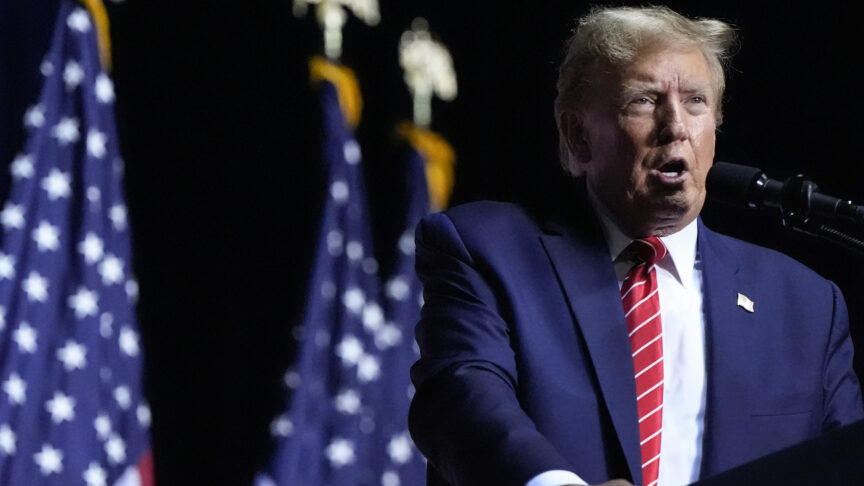Letter from Washington: All-knowing America and US intelligence diplomacy
The apparent omniscience of US intelligence is a valuable strategic asset. In this third instalment of ECFR’s Letters from Washington, Jeremy Shapiro sets out what Europeans can learn from the US intelligence community to boost their diplomatic arsenal
The March 2024 terrorist attack at Crocus City Hall, a popular concert venue, near Moscow came as a shock to most people. Certainly, the Russian authorities seemed surprised and unprepared for the four gunmen who killed over 140 people. No extra security measures seem to have been in place. The response to the attack seemed reactive to say the least. The Russian security services tortured the alleged perpetrators live on camera and government figures scrambled to blame others, variously claiming that the attackers were backed by or fleeing to Tajikistan, the Islamic State group (ISIS), Ukraine, Belarus, the United States, and the United Kingdom.
One group, however, can make a strong claim to not having been surprised: the US intelligence community. The US government issued a security warning on its embassy website two weeks before the event that ISIS intended to attack a large gathering in Moscow. Citing their “duty to warn” those under threat of a terrorist attack, the US government also says it briefed Russian officials on the threat. It even specified that Crocus City Hall was a potential target. The warnings appear to have fallen on deaf ears. Just three days before the attack, Russian president Vladimir Putin publicly dismissed the warnings as “obvious blackmail”.
This incident is the latest in a string of impressive intelligence coups for the US services. The most prominent example of course is its vocal prediction of the February 2022 Russian invasion of Ukraine in the face of much scepticism almost everywhere, even in Ukraine. At this point, whenever any confusing event happens almost anywhere in the world – from an alleged Russian missile attack on Poland to a civil war in Sudan, almost every journalist turns first to US intelligence for an explanation.
But the United States’ preemptive response to the Moscow attack shows more than just traditional intelligence capacity. US intelligence has long excelled at knowing things, but its culture of secrecy has often hobbled its ability to use that knowledge effectively. Under the Biden administration, however, the US has evolved a new use of intelligence that Central Intelligence Agency director, William Burns, terms “intelligence diplomacy.”
The practice of intelligence diplomacy
The essence of intelligence diplomacy rests on the growing awareness in the US government and elsewhere that information is a strategic asset that if used wisely can provide diplomatic leverage. In the run-up to the Ukraine war, the US did not just release intelligence on Russian intentions. It used that information to shape a narrative of Russian aggression so that when the Russian invasion did occur, people around the world could see it for what it was. By loudly stating that the Russians intended to invade months in advance, the usual Russian efforts at staging false flag operations or elaborate justifications for their actions simply didn’t work.
The essence of intelligence diplomacy rests on the growing awareness in the US government and elsewhere that information is a strategic asset that if used wisely can provide diplomatic leverage
Similarly, we can expect that US diplomats are now telling governments across the global south exactly what they briefed to the Russians before this attack. These governments will wonder aloud whether the Russians can be effective or trustworthy partners if they are unwilling or unable to understand what is happening in their own country or take even basic measures to protect their own people. By contrast, the US, they will likely note, was willing to use its apparent omniscience to warn even one of its most bitter geopolitical foes of impending violence against innocent civilians.
And US intelligence diplomacy consists of more than just “strategic declassification.” The US intelligence community is also becoming an increasingly vital component of American diplomatic outreach. As Burns notes, “[s]ometimes, it’s more convenient for intelligence officers to deal with historic enemies in situations in which diplomatic contact might connote formal recognition.”
So, it was Burns who talked to the Taliban just before the final withdrawal of US troops from Afghanistan and who participates in the talks with Qatar and Egypt over trading a ceasefire for Israeli hostages held by Hamas. It was Burns who the US sent to Moscow in November 2021 to try to dissuade the Russians from invading. Since February 2022, US and Russian diplomats have barely talked, but news reports imply that the intelligence channels between Washington and Moscow remain open for communication at least. If any sort of negotiation were to take place between Russia and the US, it seems clear that they would start through intelligence channels.
European intelligence diplomacy
US intelligence diplomacy is far from perfect or without drawbacks. US intelligence, for example, failed to shape the narrative over a Chinese spy balloon that wandered over the US in early 2023, resulting in a mini political panic. But intelligence diplomacy is here to stay. It has often proven an effective and important tool at time when instant global communications and pervasive social media mean that pre-framing issues is vital for shaping global opinion and the normal channels of diplomacy are fraught with political risk. This clear trend in diplomatic practice has important implications for US allies and partners, especially in Europe.
In the first instance, it means that European security is becoming ever more reliant on US intelligence capabilities. There is a lot of talk and even some action on the need to increase European defence spending and for Europeans to provide more military assistance for Ukraine in case the US will not. But there seems much less effort to create a European-wide intelligence capability that can foresee Russian actions and shape the narrative around them. Given how geopolitics work today, this means that Europeans will remain deeply reliant on the US even if the last US battle tank were to return to Texas.
Perhaps more immediately, Europeans also lack the collective capacity to participate in the intelligence diplomacy that Burns is conducting so frequently. Intelligence structures in Europe remain even more rigidly national than defence structures. If European Commission president Ursula von der Leyen decided that she needed to, as Burns says, use intelligence services to “deal with historic enemies” there would be no one that she could quietly send. If Burns decided he needed EU participation in his efforts to talk with the Russians or Hamas, whom would he ask? Intelligence diplomacy, it seems, is the next big thing that the European Union lacks.
The European Council on Foreign Relations does not take collective positions. ECFR publications only represent the views of their individual authors.



